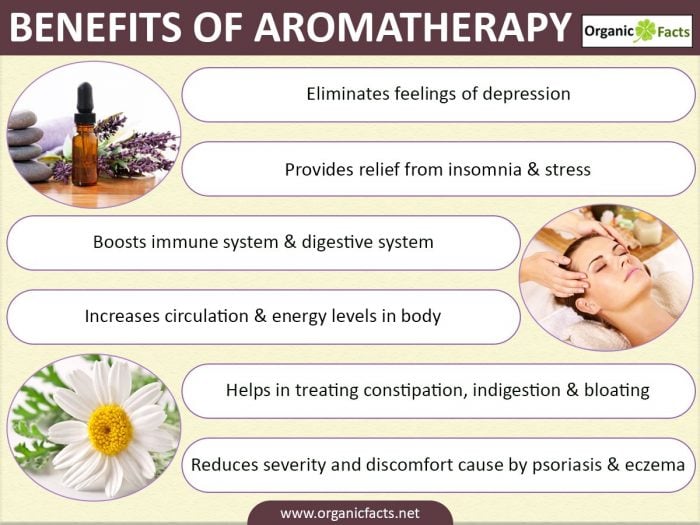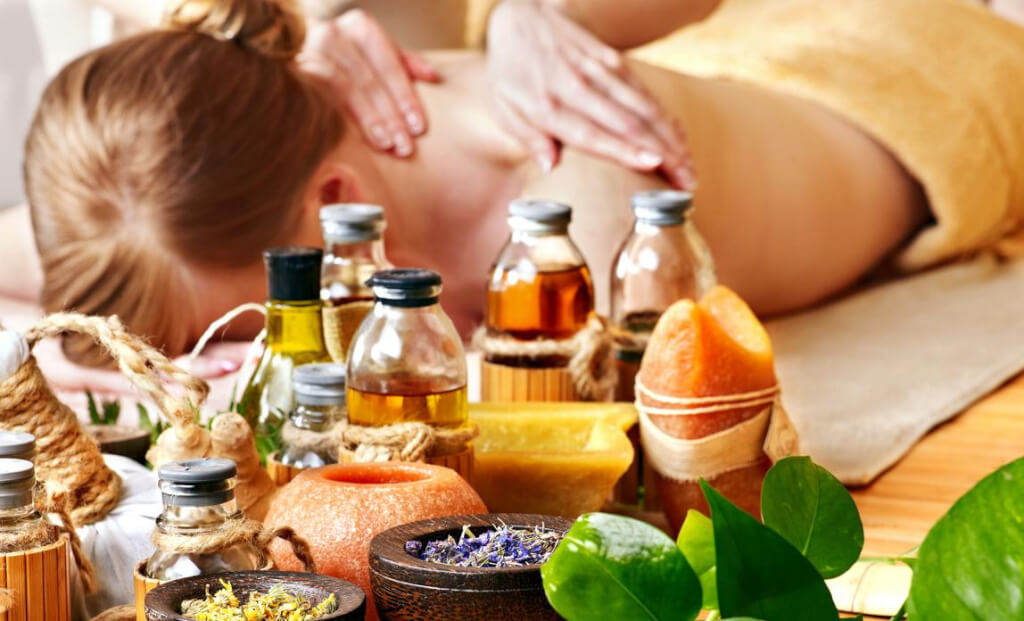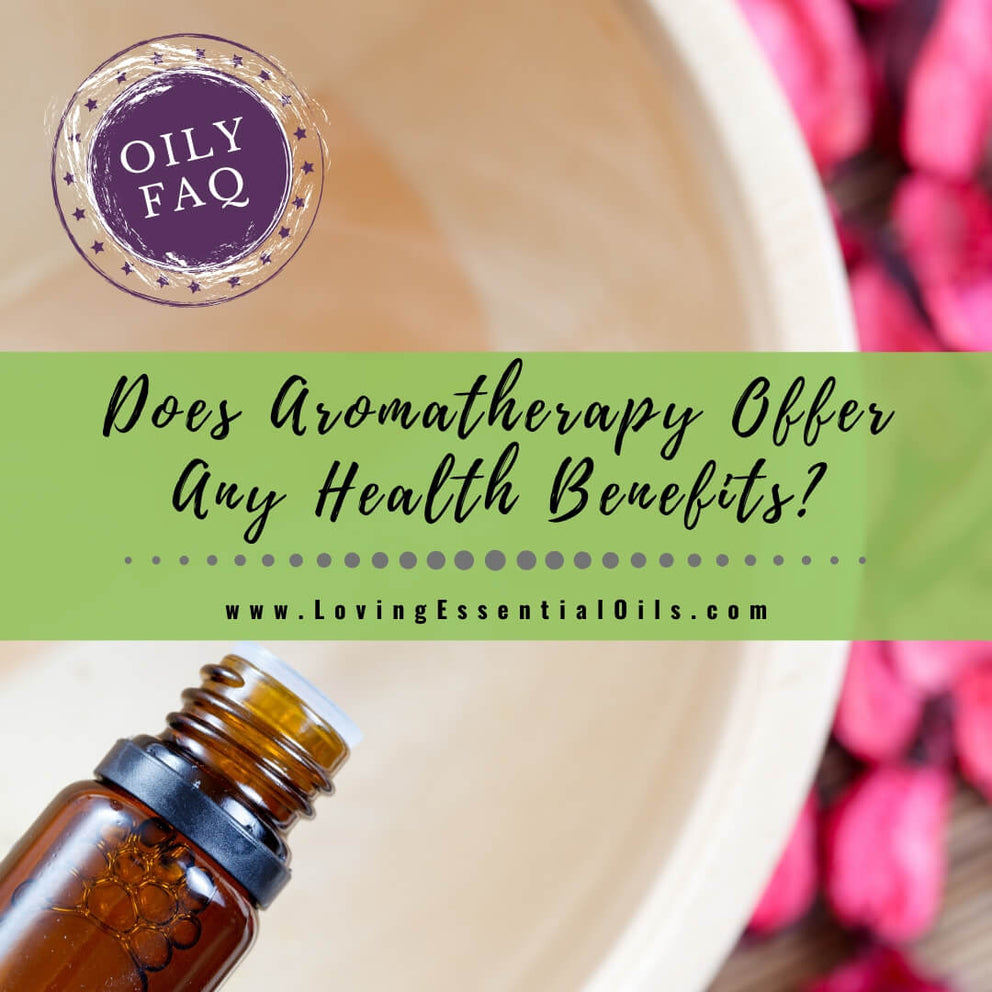Embark on an aromatic journey as we unveil the remarkable benefits of aromatherapy. From reducing stress and promoting restful sleep to alleviating pain and fostering emotional well-being, essential oils offer a natural path to holistic health. Dive into this comprehensive guide to discover the transformative power of aromatherapy and harness its healing potential for your mind, body, and spirit.
Aromatherapy, the practice of using essential oils for therapeutic purposes, has gained immense popularity in recent years. With its ability to soothe the senses, enhance mood, and improve overall health, it’s no wonder why this ancient practice is experiencing a modern-day revival.
Join us as we explore the fascinating world of aromatherapy, uncovering its benefits, methods, and safety precautions.
Health Benefits of Aromatherapy
Aromatherapy is a holistic therapy that utilizes natural plant extracts, known as essential oils, to promote physical and emotional well-being. These aromatic compounds interact with the body’s olfactory system, triggering various physiological and psychological responses.
Inhaling or applying essential oils can provide numerous health benefits, including:
Reducing Stress
Essential oils like lavender, chamomile, and bergamot possess calming properties that can reduce anxiety and promote relaxation. These oils interact with the limbic system, a brain region associated with emotions, and trigger the release of calming neurotransmitters like serotonin.
Improving Sleep
Certain essential oils, such as lavender, ylang-ylang, and valerian root, have sedative effects that can improve sleep quality. These oils help to reduce stress and anxiety, promoting relaxation and facilitating restful sleep.
Alleviating Pain
Essential oils like peppermint, eucalyptus, and ginger have analgesic properties that can help to alleviate pain. These oils interact with pain receptors in the body, reducing inflammation and providing a cooling or warming sensation.
Methods of Aromatherapy

Aromatherapy offers various methods for utilizing essential oils to enhance well-being. These methods include inhalation, topical application, and diffusion, each with its unique benefits and considerations.
Inhalation
- Direct Inhalation:Inhaling essential oils directly from the bottle or a tissue allows for immediate effects. However, it’s important to dilute strong oils before inhalation to avoid irritation.
- Steam Inhalation:Adding a few drops of essential oil to a bowl of hot water creates a steam that can be inhaled to relieve congestion and respiratory issues.
- Nasal Inhaler:Essential oils can be placed in a nasal inhaler for convenient and targeted inhalation, particularly for respiratory support.
Topical Application
- Massage:Diluting essential oils in a carrier oil (e.g., coconut, jojoba) allows for massage applications, providing both aromatic and therapeutic benefits.
- Baths:Adding essential oils to a warm bath can create a relaxing and soothing experience, promoting skin health and stress reduction.
- Compress:Essential oils can be added to a warm or cold compress to apply to specific areas for pain relief or inflammation reduction.
Diffusion
- Diffuser:Essential oils can be diffused into the air using an electric diffuser, dispersing their aroma throughout a room for a more ambient effect.
- Candle:Candles infused with essential oils provide a gentle and continuous release of aroma, creating a calming or invigorating atmosphere.
- Passive Diffusion:Placing a few drops of essential oil on a tissue or cotton ball and leaving it in a room allows for gradual diffusion without the need for a device.
Essential Oils for Aromatherapy

Essential oils are highly concentrated plant extracts that capture the natural scent and therapeutic properties of plants. In aromatherapy, these oils are diffused into the air or applied topically to promote relaxation, improve mood, and alleviate various health conditions.
Popular Essential Oils
The following table lists some popular essential oils used in aromatherapy, along with their properties and benefits:|
- *Essential Oil |
- *Properties |
- *Benefits |
|—|—|—|| Lavender | Calming, relaxing, anti-inflammatory | Promotes relaxation, reduces stress, improves sleep || Peppermint | Stimulating, invigorating, decongestant | Boosts energy, improves focus, clears congestion || Eucalyptus | Antiseptic, expectorant, decongestant | Relieves respiratory problems, reduces inflammation || Tea Tree | Antibacterial, antifungal, antiviral | Treats skin infections, boosts immunity || Lemon | Uplifting, energizing, antiseptic | Improves mood, reduces fatigue, purifies the air |
Choosing and Blending Essential Oils
When choosing essential oils for aromatherapy, consider the desired therapeutic effect and personal preferences. Some oils blend well together to create synergistic effects. For example, lavender and chamomile promote relaxation, while peppermint and eucalyptus are effective for respiratory support.To blend essential oils, mix a few drops of each oil into a carrier oil, such as jojoba or coconut oil.
The carrier oil dilutes the essential oils and makes them safe for topical application.
Aromatherapy in Different Settings
Aromatherapy finds application in various settings, each with unique benefits and considerations.
Homes
In homes, aromatherapy can create a relaxing and calming atmosphere, promote sleep, and improve air quality. Diffusers or candles can disperse essential oils, allowing their scents to permeate the space. However, caution is advised for those with allergies or respiratory issues.
Spas
Spas incorporate aromatherapy into massages, facials, and other treatments. The relaxing and therapeutic effects of essential oils enhance the overall spa experience. Aromatherapy can also help reduce stress, improve circulation, and promote relaxation.
Healthcare Facilities
Aromatherapy is increasingly used in healthcare settings, including hospitals and clinics. It can help reduce anxiety, improve sleep, and alleviate pain. Essential oils can be diffused in patient rooms or applied topically with a healthcare professional’s guidance.
Safety Precautions for Aromatherapy

While aromatherapy offers numerous benefits, it’s crucial to exercise caution and follow safety precautions to avoid potential risks. Essential oils are highly concentrated plant extracts, and improper use can lead to adverse effects.
Before incorporating aromatherapy into your routine, consult with a qualified healthcare professional, especially if you have any underlying health conditions, are pregnant, or breastfeeding.
Potential Risks and Contraindications
- Skin Irritation:Some essential oils, such as cinnamon or oregano, can cause skin irritation or allergic reactions in sensitive individuals. Always dilute essential oils with a carrier oil, such as coconut or jojoba oil, before applying them to the skin.
- Ingestion:Essential oils are highly concentrated and should never be ingested orally. Swallowing essential oils can cause nausea, vomiting, and other serious health issues.
- Respiratory Issues:Inhaling essential oils directly from the bottle can irritate the respiratory system, especially for those with asthma or other respiratory conditions. Always use essential oils in a well-ventilated area.
- Pregnancy and Breastfeeding:Certain essential oils, such as rosemary or sage, may be contraindicated during pregnancy or breastfeeding. Consult with a healthcare professional for guidance.
- Interactions with Medications:Some essential oils can interact with certain medications, such as blood thinners or antidepressants. Inform your healthcare provider about any essential oils you are using to avoid potential interactions.
Proper Storage Methods
To preserve the quality and efficacy of essential oils, proper storage is essential:
- Dark Glass Bottles:Store essential oils in dark glass bottles to protect them from light exposure, which can degrade their chemical composition.
- Cool and Dry Place:Keep essential oils in a cool, dry place away from direct sunlight and heat. Avoid storing them in the bathroom, as humidity can shorten their shelf life.
- Tightly Sealed:Always keep essential oil bottles tightly sealed to prevent evaporation and contamination.
- Expiration Dates:Essential oils have a limited shelf life. Check the expiration date on the bottle and discard any oils that have expired.
Ultimate Conclusion
As we conclude our exploration of aromatherapy benefits, it’s evident that essential oils hold immense potential for enhancing our physical, emotional, and spiritual well-being. Whether you seek relaxation, pain relief, or a deeper connection with nature, aromatherapy offers a gentle and effective approach.
Embrace the transformative power of essential oils and incorporate them into your daily routine to unlock a world of natural healing and rejuvenation.